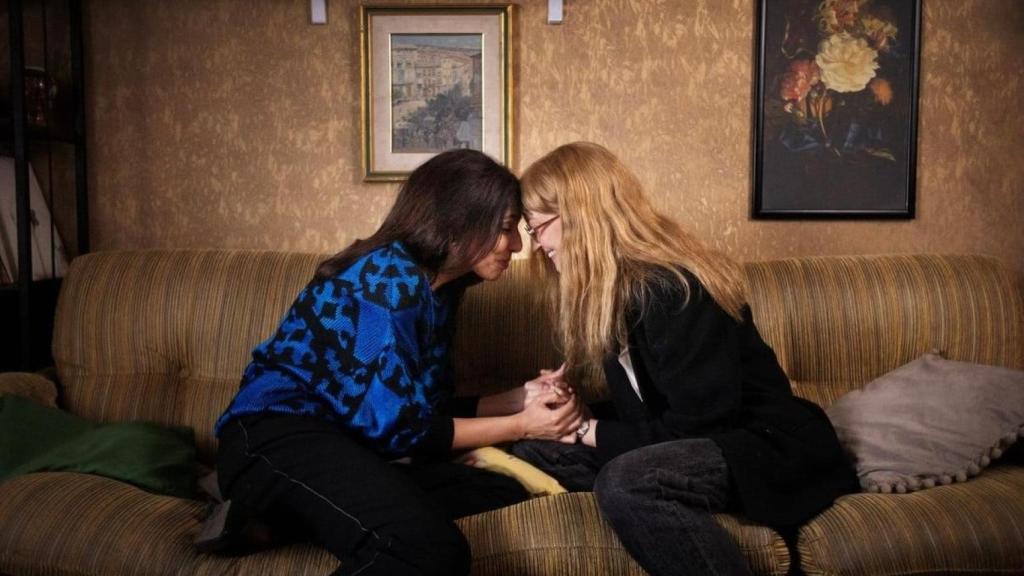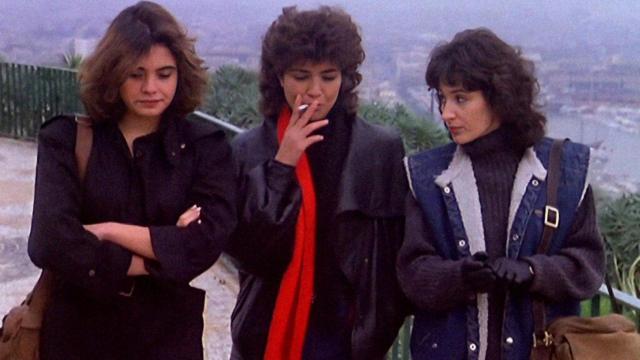
'My brilliant friend' returns outstanding for its farewell and promises a finale worthy of Ferrante's work
This fourth season, which will be the last one, adapts 'The Lost Child', the fourth volume of Elena Ferrante's saga.
It is not among the most popular on HBO, but it should be. My Brilliant Friend is one of the best series in the entire Max catalog and also an impeccable literary adaptation; a challenging feat from its conception, because the book on which the first season is based is considered the best of the century. And its author is an enigma.
This Italian production could have been an ambitious and pretentious tale. Or even worse, boring -the cardinal sin of fiction-, but the translation to the screen of the great saga by Elena Ferrante by the hand of Saverio Costanzo is beautiful, faithful, honest, powerful, eloquent, and exciting. It is impossible to resist this portrait once you enter.
The story takes us at its beginning to a humble neighborhood in Naples in the 1940s, where we see two friends grow up: Lila and Lenù. A social portrait of the era, where poverty, violence, bossism, machismo, and misogyny typical of the sociocultural context and the historical time in which its protagonists grow up are present.
That violent, criminal, and oppressive environment has laid the foundations for works like The Godfather or The Sopranos, but unlike those, always focused on the experience of the mafia bosses, in The Brilliant Friend the female perspective is explored, the challenges that Lila and Elena live with, and how they decide to face them, adapting and using the tools that each one has at their disposal to build paths of survival, escape, and personal growth.
This perspective is what sets this series (and the books) apart from other similar stories: the world's view from the eyes of those Two friends and the powerful bond that unites them. And separates them. Because their friendship is at the center of everything, with a volatile, impulsive, dependent, and competitive dynamic, in which each is a source of frustration for the other, representing what they aspire to but cannot have.

'The Brilliant Friend'
But also, and above all, each one is a source of inspiration for the other. They move away to search for each other and come together again, while yearning for each other and rejecting each other, hating and needing each other, trying to differentiate themselves and at the same time build themselves to the other's measure.
When they see their reflection in their brilliant friend's gaze, the image they have of themselves transforms; for better and for worse, because that opinion is the only one that matters, family and the rest of the town are insignificant.
The story is that of Lila and Lenù as individuals, of their friendship relationship as they grow, and of the Naples in which it is set. That culture of organized crime by the Camorra gains more prominence in the fourth season, in which Elena returns to the neighborhood and truly opens her eyes to what is happening: where the Solara's money comes from and the victims it has been claiming in the town. Not only due to the inherent violence of the business, but also by the epidemic of addiction that it has spread among family and acquaintances.
After a third installment in which they were separated most of the time, in this fourth season, the series has Elena (Alba Rohrwacher) and Lila (Irene Maiorino) reunite, to support and accompany each other in difficult moments.

'The Brilliant Friend'
And although Elena's feeling of insecurity and inferiority when comparing herself to Lila never leaves her, whether due to maturity or out of necessity, fortunately for the viewer they spend more time together. And those have always been the best moments of the series.
Throughout all its seasons, the series has cleverly interwoven historical context, and this is no exception. It also includes in a brilliant episode the earthquake that occurred in Naples in the 1980s, a moment that serves for Lila to explain her fears to Elena, an uncontrollable terror caused by anxiety and an undiagnosed personality disorder that could have been treated decades later.
'La amiga estupenda' | Temporada 4 | Tráiler VOSE
In adulthood, both continue to seek power and control to escape the fate that was written for the women of their neighborhood when they were born. Lenù has sought it academically, despite the irony of being a feminist author who discovers herself as a woman dependent on men like Nino.
Lila, on the other hand, has used her intelligence (envied by all) to identify future professions that have allowed her to be a pioneer and obtain the money and influence necessary to confront drug traffickers and fascist thugs who still dominate the city decades later. It hurts to imagine where she could have gone if she had had the same opportunities as Elena.
I have watched four episodes of this latest installment, the series finale, and I can assure you that it continues to be an exciting, ambitious, and exceptional series, which is undoubtedly heading towards one of the most perfect endings in television fiction.
New episodes of 'My Brilliant Friend' are available on Max on Tuesdays.
*This article has been automatically translated using artificial intelligence



